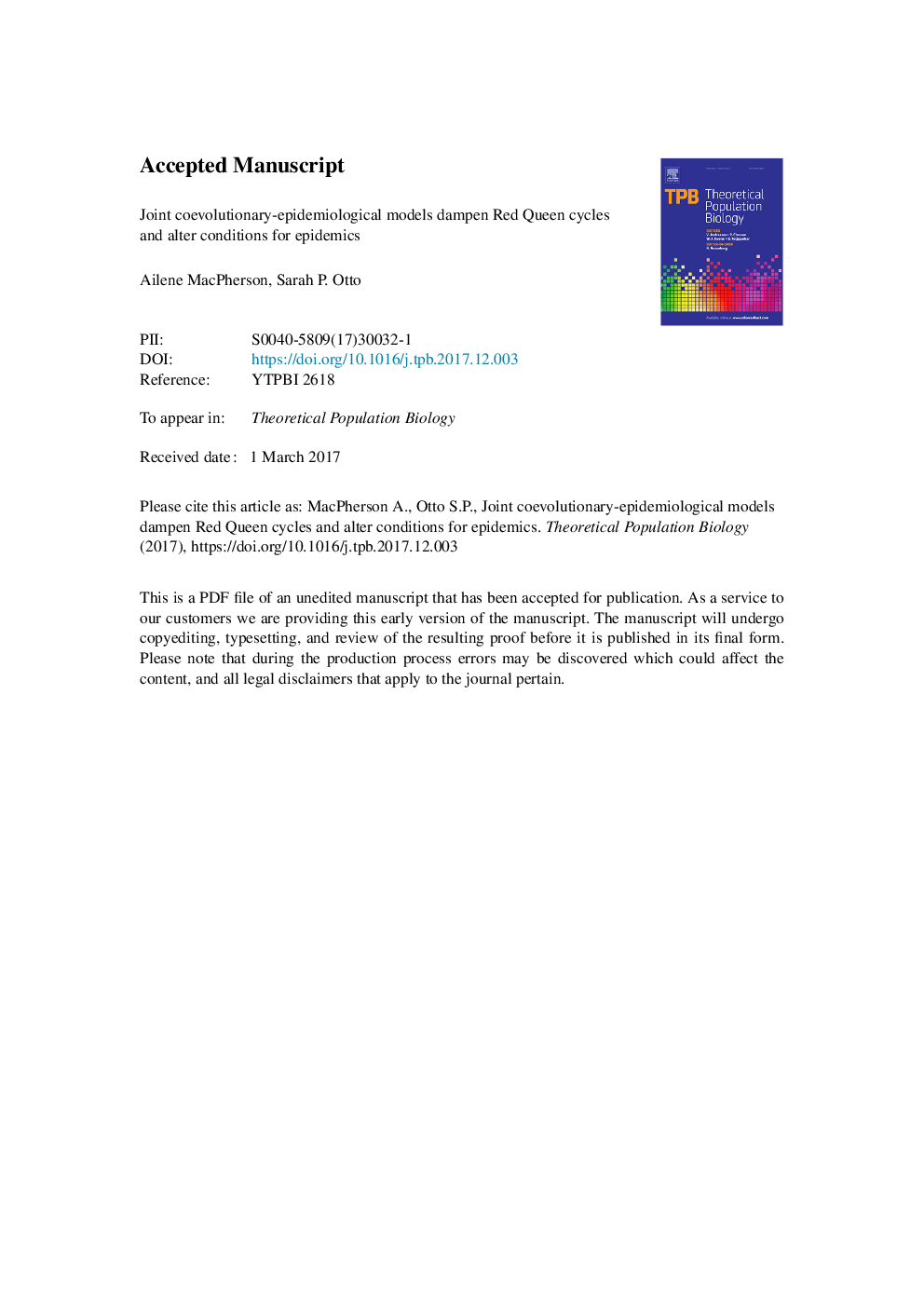| Article ID | Journal | Published Year | Pages | File Type |
|---|---|---|---|---|
| 8877442 | Theoretical Population Biology | 2018 | 26 Pages |
Abstract
Host-parasite interactions in the form of infectious diseases are a topic of interest in both evolutionary biology and public health. Both fields have relied on mathematical models to predict and understand the dynamics and consequences of these interactions. Yet few models explicitly incorporate both epidemiological and coevolutionary dynamics, allowing for genetic variation in both hosts and parasites. By comparing a matching-alleles model of coevolution, a susceptible-infected-recovered-susceptible compartmental model from epidemiology, and a combined coevolutionary-epidemiology model we assess the effect of the coevolutionary feedback on the epidemiological dynamics and vice versa. We find that Red-Queen cycles are not robust in an epidemiological framework and that coevolutionary interactions can alter the conditions under which epidemic cycles arise. Incorporating both explicit epidemiology and genetic diversity may have important implications for the maintenance of sexual reproduction as well as disease management.
Related Topics
Life Sciences
Agricultural and Biological Sciences
Agricultural and Biological Sciences (General)
Authors
Ailene MacPherson, Sarah P. Otto,
